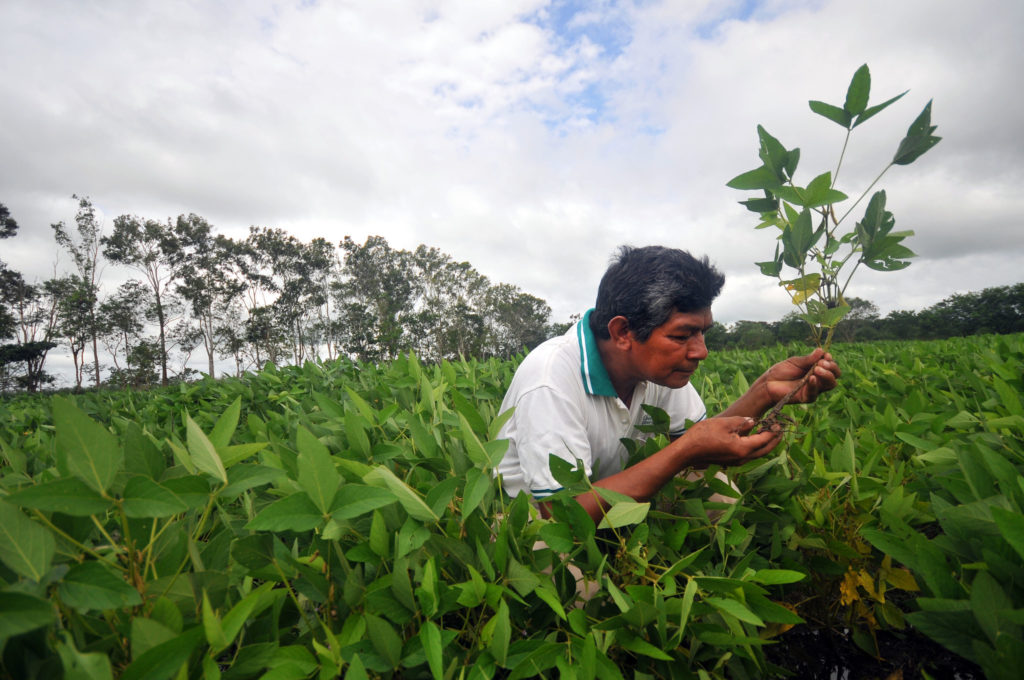Eugenia Saini is currently FONTAGRO’s Executive Secretary. FONTAGRO is the Regional Fund for Agricultural Technology. She leads the investment fund and a portfolio of 70 international operations related to science, technology, and innovation for the Latin America and the Caribbean region. She is from Argentina and is an agronomist by training. She holds a doctorate in agricultural sciences, specializing in total factor productivity analysis. One of her seminal works in this field was the estimation of 120 years of TFP for the agricultural sector in Argentina. She is also a National Public Accountant and holds an MS in Food and Agribusiness and an MS in Applied Economics, both from Universidad de Buenos Aires. She has worked in the private and public sectors, both nationally and internationally, especially in multilateral banks. She was awarded a Fulbright Scholarship at Cornell University and, more recently, with the Abshire-Inamori Leadership Academy (AILA) Scholarship at the Center for Strategic & International Studies (CSIS) in Washington, D.C.
Agricultural productivity is not just essential for sustainably meeting the demands of a growing world. The technologies and practices that enable producers to produce more output with the same amount, or less inputs, can also be harnessed to cultivate resilience.
In addition to COVID-19, agricultural communities battle pandemic-scale pest and disease outbreaks every year. The health and productivity of people, livestock, and crops are all vulnerable, and resilience in the face of these threats has never been more important.
The stories below describe how the GAP Initiative’s Supporting Partners are working with communities around the world to improve their productivity and resilience.
Data-driven innovation promotes resilience for smallholders – Bayer Crop Science

Innovations in plant breeding are enabling farmers to adopt new crop varieties that are better suited to respond to unique environmental stresses as they occur around the world. For instance, Bayer’s work to develop a short stature corn hybrid will reduce the risk of crop loss due to lodging, enable mid-season disease treatment, and open the door to even higher yields.
In Kenya, private sector-driven alliance to focus on animal nutrition as a pathway to food security – Corteva Agriscience™
Corteva Agriscience™, Land O’Lakes Venture37, Bidco Land O’Lakes, Forage Genetics International (FGI), and the International Livestock Research Institute (ILRI) have forged an alliance that aims to empower 5,000 women smallholder dairy farmers by increasing their productivity and incomes. This unique partnership is using data and technology to improve livelihoods of women smallholder dairy farmers and build resilience of local food systems.
Keeping farms running, while keeping farmers safe in Latin America – John Deere

The COVID-19 pandemic led to a drastic shift in the importance of virtual tools, as the world rushed to adopt and embrace remote work — including farmers. With safety measures like shelter-in-place and social distancing enacted in response to the pandemic, associates for manufacturers had to embrace virtual assistance for their clients. John Deere dealers in Latin America pivoted to a remote model, with measurable success.
Biosecurity measures protect animals from African Swine Fever – Smithfield Foods

African Swine Fever (ASF) is a highly contagious, incurable and fatal viral disease that affects hogs. Smithfield’s strong biosecurity measures keep animals safe and healthy on farms. They also support efforts to help feed a growing world population, provide jobs in local communities, and sustain other businesses in the global agricultural supply chain.
Beyond agriculture: Investing in resilient communities – The Mosaic Company

Building sustainable agriculture systems that can withstand shocks like pandemics doesn’t mean only investing directly in agriculture, but in the fabric of society. The Mosaic Company, The Mosaic Company Foundation and The Mosaic Institute in Brazil have a long history of investing in communities in ways that contribute to their vitality. That work has never been more important than during a pandemic.
Saving soybeans from billions in losses by pathogens – Virginia Tech College of Agriculture and Life Sciences

Soybeans are heavily impacted by root and stem rot diseases caused by oomycete pathogens, fungal-like microbes that cause highly destructive plant diseases. A team of researchers led by Virginia Tech developed tools using genomic advances that pave the way to new diagnostic tools, disease-resistant soybeans, and managing dangerous pathogens.
Header photo courtesy of Smithfield Foods.


